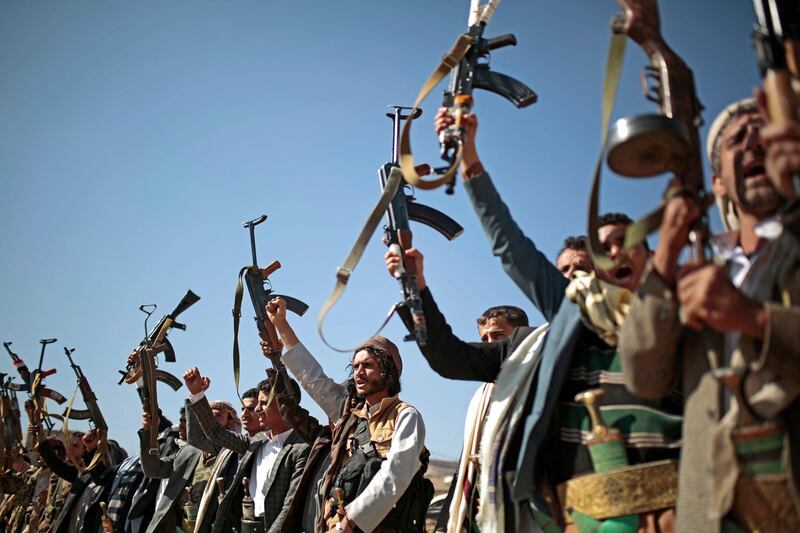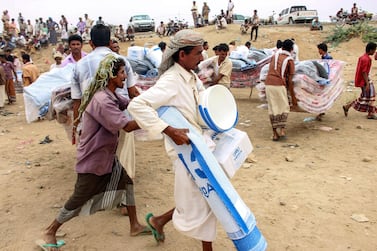Yemen’s Human Rights Minister on Tuesday said Houthi violations of the Hodeidah ceasefire amount to nearly 2,000 “criminal acts” against civilians.
On the sidelines of the 40th session of the UN Human Rights Council in Geneva, Mohammed Askar said the Yemeni government was concerned with the progress of the implementation of the agreement.
“Houthi actions against civilians in Yemen amount to war crimes," said Mr Askar. "We have recorded a total of 1,943 violations of the ceasefire which resulted in the killing of 123 people and 627 injuries.”
The ceasefire deal, one of several confidence-building measures taken by Yemen's government and the rebels at the UN-brokered talks in Sweden, was hailed as the best path to full-scale peace negotiations and an end to the war.
The Yemeni minister also touched on the country's dire humanitarian situation. Houthi rebels, he said, have been blocking the delivery of much-needed aid.
“I am surprised at why the international community is silent on this issue,” he said, calling on rebels to open humanitarian corridors.
“They are taking advantage of the agreement to reinforce their defence position by digging trenches and planting mines,” Mr Askar told the delegates.
Houthis have targeted the Red Sea Mills, a facility that stores wheat and milling equipment to feed millions of starving people, and have destroyed 25 per cent of its grain reserves, the minister explained.
According to the Norwegian Refugee Council nearly 788 people have been killed across the country since the talks in Sweden in December last year. More than 1,600 homes, 385 farms, 47 businesses and 13 schools have also been destroyed.
Fighting in Hajjah
The rebels, says Yemen’s Deputy Minister for Human Rights, have taken advantage of the international spotlight on Hodeidah to carry out violent attacks in the northern province of Hajjah.
"Women and children were forcibly displaced and more than 4 thousand families were still being subjected to various kinds of criminal violations," Majid Fadil told The National.
Members of the Hajoor tribe have been fighting the Iran-backed rebels in the mountainous Kushar district for over a month, killing more than 60 civilians and injuring over 217, including women and children.
The Houthis imposed their control over Hajjah's northern districts after a local tribe took up arms against them.
Hajjah is among the provinces with the highest humanitarian needs in Yemen.
The Rasd coalition, a Yemeni government body that monitors human rights violations in the country, has accused the rebel group of crimes against Hajjah residents.
"More than 480 civilians have been reported missing in Hajjah, in total there are 3,375 missing people in Yemen," according to a report published by the coalition, that was seen by The National.
According to the report 11,267 Yemenis have been killed, including 1,493 children, 720 women and 569 elderly among others.
The rights group also warned that since the beginning of the war in 2015 more than a million mines have been planted.
Houthi threats
Earlier this week a Houthi spokesman warned Saudi Arabia and the UAE of the group's access to "aerial photographs and coordinates of dozens of headquarters, facilities and military bases of the enemy."
"The legitimate targets of our forces extend to the capital of Saudi Arabia and to the emirate of Abu Dhabi," Yahya Saree said. "We have manufactured advanced generations of attack aircraft, and new systems will soon be functional."
The rebels have targeted Saudi border towns and Riyadh with ballistic missiles during the last few years.







